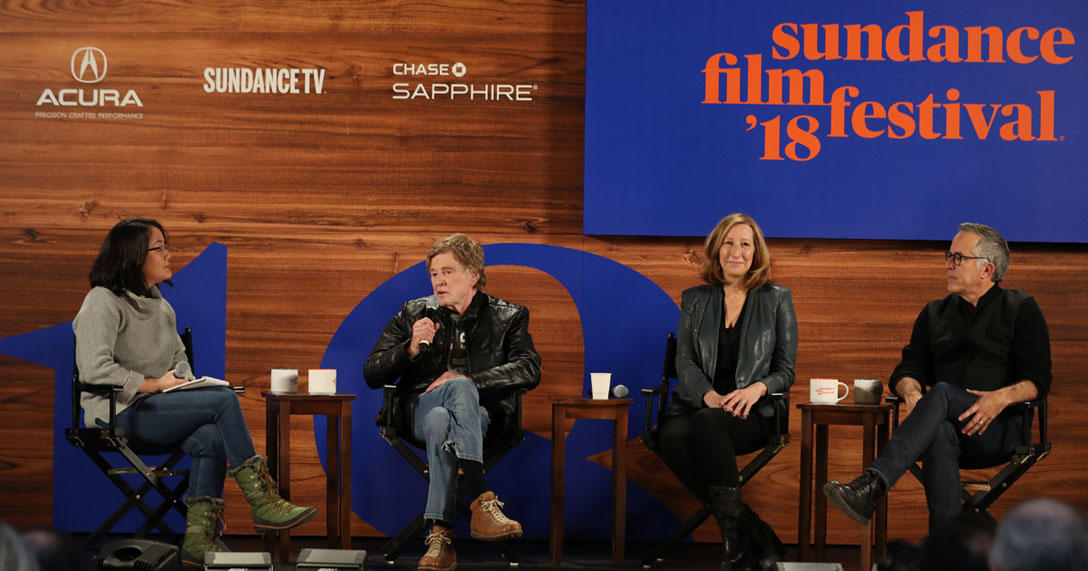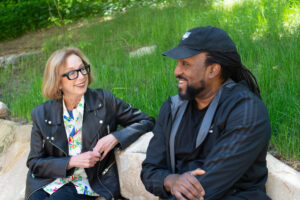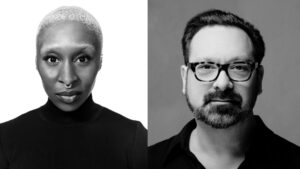(L-R) Writer/moderator Barbara Chai, Robert Redford, Keri Putnam, and John Cooper.
© 2018 Sundance Institute | Ryan Kobane
Nate von Zumwalt
It should come as no surprise that transparency and accountability surfaced as vital themes on day one at the Sundance Film Festival. From Oscar snubs and questions surrounding diversity—ahem, or the lack thereof—to attacks on freedom of expression, the Festival’s Day One Press Conference has functioned in recent years as a moment to survey the state of affairs in independent film, and more importantly, our world at large.
This year, as a seemingly endless stream of appalling sexual misconduct cases are brought to light alongside the #MeToo movement, Sundance Institute President and Founder Robert Redford did not mince words when addressing the widespread problem.
“The role for men, right now, would be to listen,” Redford said before acknowledging that he expects systemic change on the other side of the current movement. “I’m pretty encouraged right now with this period of change. What it’s doing is it’s bringing forth more opportunity for women, and more opportunity for women in film to have their own voices heard.”
Keri Putnam, the Institute’s executive director and a force behind Women at Sundance’s work to research and ameliorate gender inequity across the industry, offered a comprehensive look at the scale of the sexual assault and gender disparity issues that seem to perpetuate each other.
“I think it’s about more than a few individual men,” Putnam said. “I think it’s about the underlying systems of power, and especially in the media industry. What are those structures? What are those assumptions that we make in terms of what we value? Who gets financing? Who gets distribution? Who gets to tell the stories?”
Putnam went on to clarify that the collaborative research efforts between Sundance Institute and Women in Film led to the creation of ReFrame, a new group that has aligned with the Time’s Up coalition to further gender parity behind the camera in film, TV, and media.
The mood at Park City’s Egyptian Theatre suggested that change is not only viable, but inevitable, and that acknowledging and reacting to these glaring challenges is the path to empowerment. As Festival Director John Cooper remarked, “We’re onto change.”
And there are many.
“We have a new theater—it’s called The Ray,” Cooper announced. The space was transformed from a Sports Authority and has the stamp of approval from the Festival’s top man: “It is amazing.” He also delved into the Festival’s newest program focused on Indie Episodic content, and explained that its conception was a response to a trend of filmmakers working across mediums.
“Episodic work is happening—that’s where a lot of the true independence is happening,” he said. “We’ve always been a Festival that follows the artists. And it’s real now.”
Before wrapping things up, Cooper fielded a question about how Sundance manages to help filmmakers “keep the faith.” Without missing a beat, the festival director responded in earnest with a thought that could serve us all: “The strength in this is knowing that you’re not alone… you have a common bond: storytelling as a power to change the world. And that’s what we do here.”




